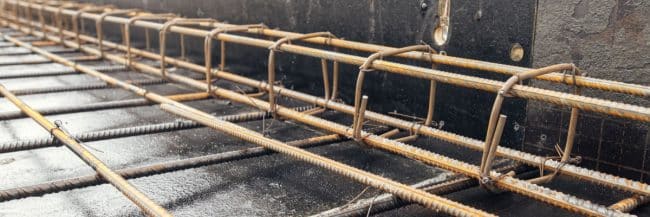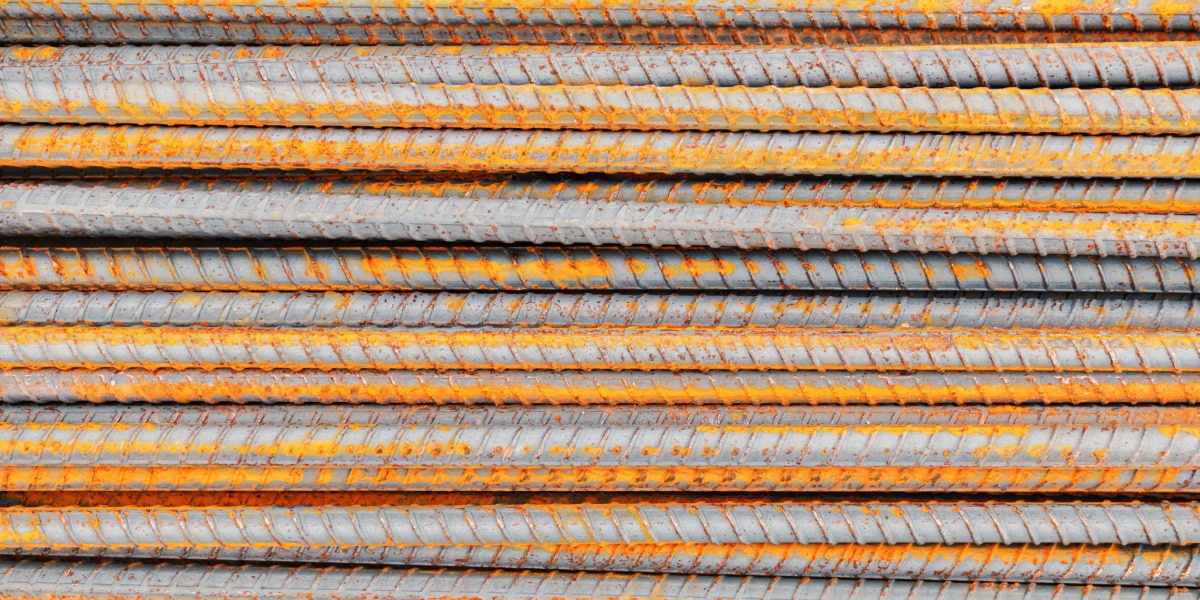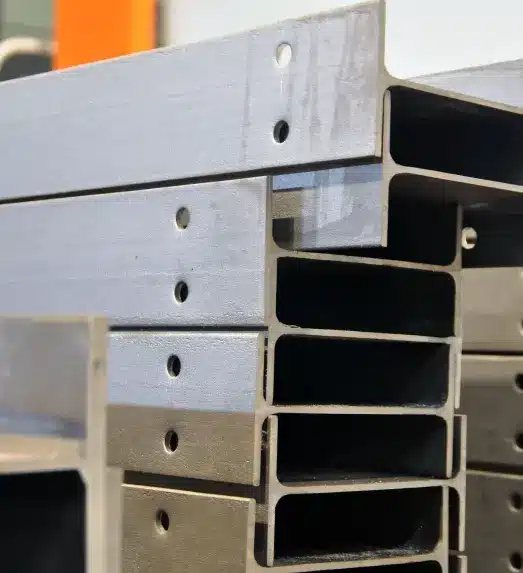If you’ve ever seen piles of rebar ready to use in a construction project, you might have noticed that it looks rusty. Rusty rebar might seem like a problem since rust usually indicates that the metal is being weakened by corrosion. However, rebar rusting isn’t necessarily an issue and can actually be a benefit depending on the type of rust.
A Quick Overview of Rebar
Rebar is short for “reinforcing bar.” It is made of steel and is embedded in concrete to increase the strength and durability of manufactured structures. Over time, pure concrete will crumble and degrade, but rebar will help it maintain its form and prevent cracks from causing the entire structure to collapse.
Fabricated rebar comes in many levels of strength or grades. Measured in kilopound per square inch — or KSI — the grade of the rebar indicates how much yield it has. There are different types of rebar, with carbon steel being the most common.
For situations where corrosion may present a particular hazard, rust-resistant rebar made from galvanized steel, stainless steel, and epoxy-coated steel is available. Glass fiber reinforced polymer is another alternative that’s becoming popular thanks to its high tensile strength.
Read now: Rebar vs. Wire Mesh: Which is Better?
Does Rebar Rust?
Yes, rebar does rust, but the majority of what’s called “rust” is actually known as “mill-scale.” It’s referred to as mill-scale because it’s present on the surface of the rebar after leaving the mill where it was made.
Mill-scale, despite its appearance, is a protective layer. However, this layer can be disturbed and lead to the rebar experiencing genuine rusting rebar.

What Factors Cause Rebar Rusting?
There are two main contributors to rebar rust. These are:
Rain
Rain can wash away the mill-scale layer of rebar before it is laid. Another issue caused by rain is that the outer layer of rebar getting washed away can stain the concrete as it’s poured over the structure.
Salt Water
When discussing the viability of using rusting rebar, know that saltwater corrosion causes damaging amounts of rust that may render the rebar unusable. It’s possible to remove surface corrosion from saltwater exposure with high-pressure water, but severely corroded rebar must be replaced.
Can You Use Rusty Rebar in Concrete?
It’s perfectly fine using “rusty” rebar that is coated in mill-scale and is not genuinely rusted. Mill-scale has even been shown to improve the adhesion between rebar and concrete.
Section 12 of the ASTM A 615-96a, “Standard Specification for Deformed and Plain Billet Steel Bars for Concrete Reinforcement,” states explicitly that rust is not a cause to reject a piece of rebar so long as it otherwise meets ASTM specifications.
When Rusty Rebar Can Become Problematic
Given certain conditions, rusty rebar can be an issue.
First, the rebar must be exposed to corrosive elements. Perhaps the concrete around the rebar has cracked, and saltwater has made its way to the exposed steel. Road salt and seawater can provide enough chloride ions. However, that steel rebar can be affected even if the concrete remains whole.
Corroding steel presents a couple of problems. First, the more steel rusts, the weaker it becomes as the metal is replaced by flakes and powder. Second, rusting steel expands.
As the steel expands, it places more stress on the surrounding concrete in a process called “oxide jacking.” This process causes the concrete to fail faster than it would have otherwise.
DWR Is Your Trusted Rebar Supplier
DWR supplies high-quality rebar to clients worldwide for various projects such as roads, buildings, wind turbine foundations, and swimming pools. The rebar we provide comes in many shapes and sizes:
- Bent rebar
- Cut rebar
- Rebar pins
- Stirrups
- Dowels
Our customers have come to expect precision from our fabricated rebar, and we deliver according to their exact specifications. You can order our rebar in coils or straight lengths up to 60 feet.
You can count on DWR for sustainable construction materials. We operate with one of the lowest carbon dioxide emissions per ton of any steel producer worldwide! When you’re ready to build, we’re ready to reinforce.
Contact our team to order your rebar from DWR today!

